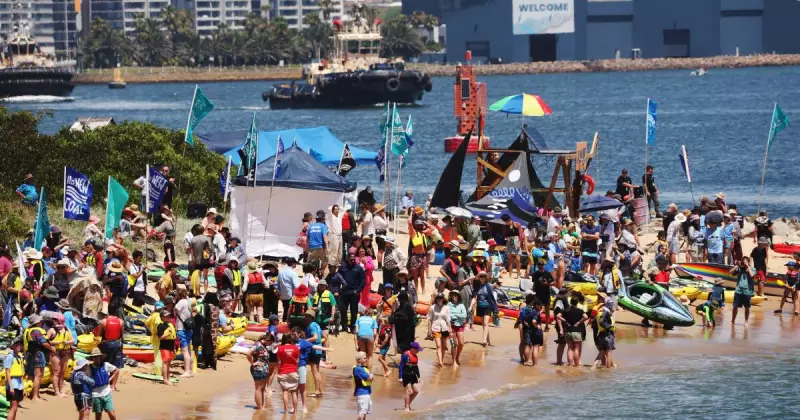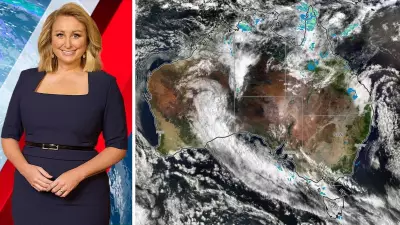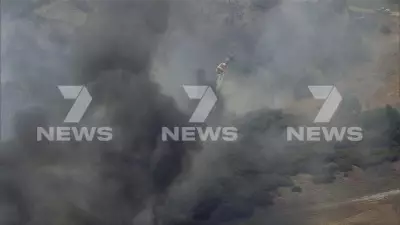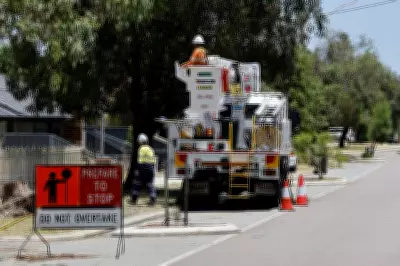
In a dramatic escalation of climate activism, the Port of Newcastle faces a critical decision as thousands of protesters prepare to symbolically blockade the world's largest coal port next week. Environmental group Rising Tide has issued a direct challenge to port authorities, demanding they declare whether they stand with climate activists or continue supporting coal corporations.
The People's Blockade Returns
The upcoming protest, scheduled for late November 2025, will see thousands of ordinary Australians gather at Foreshore Park and Horseshoe Beach to recreate last year's People's Blockade of Newcastle Harbour. The demonstration brings together an unprecedented coalition including workers from the coal supply chain, religious leaders, flood and bushfire survivors, Pacific Island community representatives, medical professionals, and young people concerned about their climate future.
Rising Tide organiser Zack Schofield emphasized the symbolic nature of the protest, stating that participants are demanding the Australian government implement a planned phase-out of coal production. "We're fighting for our government to phase out coal as though lives and livelihoods depend on it - because they do," Schofield declared.
Economic Reality Check
The protest comes amid growing evidence of coal's declining economic viability. Australian Treasury modelling predicts the value of Australia's fossil fuel exports will shrink by 50% by 2030, with demand for thermal coal expected to decline even more rapidly. Adding weight to these projections, Port of Newcastle CEO Craig Carmody has publicly acknowledged that the coal export market could collapse within a decade.
International developments further underscore the shifting landscape. South Korea, the world's fourth-largest coal importer and a major Australian trading partner, recently committed to closing all its coal-fired power plants by 2040. This decision represents a significant blow to Australia's export markets and highlights the global transition away from fossil fuels.
A Just Transition Plan
Contrary to industry claims, Rising Tide isn't calling for an immediate shutdown of coal operations. The group recognizes the Hunter Valley's economic dependence on the industry and has proposed a detailed transition plan. Their central demand is a 78% tax on coal export profits, matching Norway's tax on oil exports, to fund regional renewal.
The proposed tax revenue would support:
- New clean manufacturing projects
- Renewable energy infrastructure rollout
- Worker retraining programs
- Enhanced social services for Upper Hunter communities
Muswellbrook Mayor Jeff Drayton has voiced serious concerns about the potential economic impact, warning that "Muswellbrook and the Hunter are on the brink of the largest industrial closure in NSW's history, eclipsing the BHP steelworks closure in 1999."
The Human Cost of Inaction
The urgency of climate action is underscored by alarming research from the UK-based Institute and Faculty of Actuaries. The organization, representing leading corporate risk assessors, projects that current emissions trajectories could lead to at least 4 billion premature deaths by the time today's children reach their sixties.
Rising Tide positions itself as uniquely able to advocate for Hunter workers because, unlike government, the group claims it's "not held back by corporate influence, financial self-interest, or rank political cowardice." Schofield argues that only substantial financial investment can prepare the region for the inevitable energy transition.
As the protest date approaches, all eyes are on the Port of Newcastle's management. Their response to the blockade - whether they attempt to stop coal ships or allow the symbolic protest to proceed - will signal where they stand in the defining environmental and economic battle of our time.





